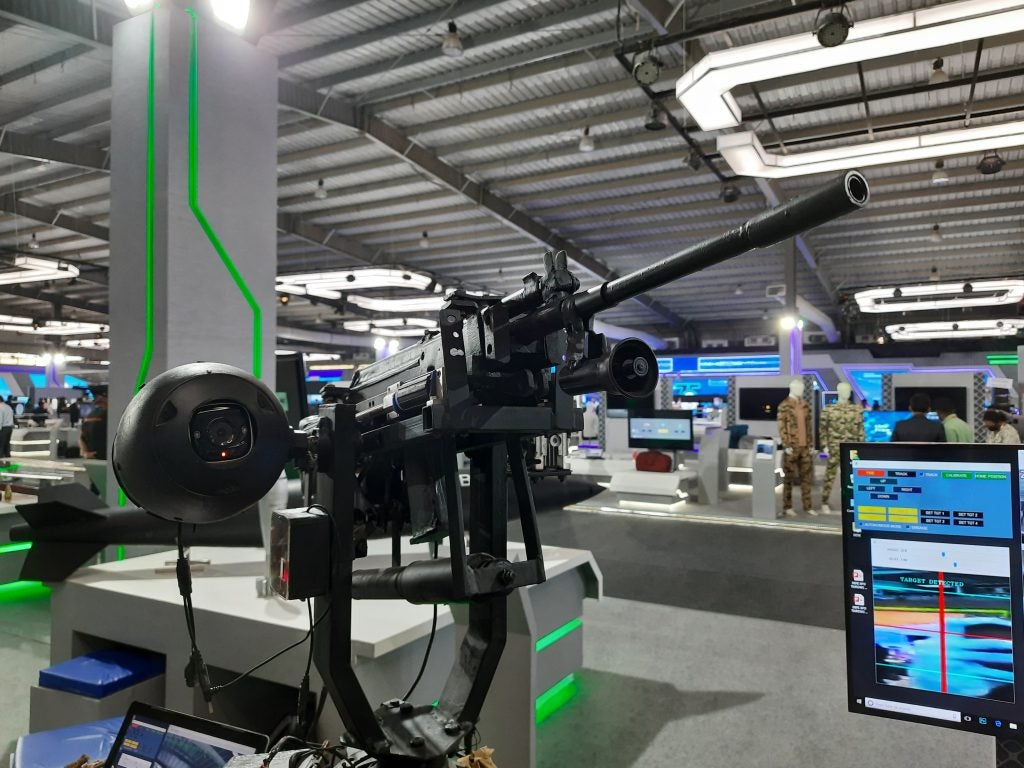DefExpo 2022: Indian Army Unveils “Karn Kavach” & Multiple AI Enabled Solutions
The Indian Army showcased various in-house solutions during DefExpo 2022 held from October 18 – 22. These included F-INSAS, detonation systems and remotely operated weapon stations. The Army has also turned towards multiple Artificial Intelligence (AI) enabled surveillance and tracking solutions.
Karn Kavach (F-INSAS)
The project is intended to provide an “integrated soldier system with a sensor-shooter interface to enhance the mission effectiveness.” The Karn Kavach system provides “increased lethality, mobility, survivability and situational awareness to the infantry soldier.” The system was handed over to the Army in August 2022.
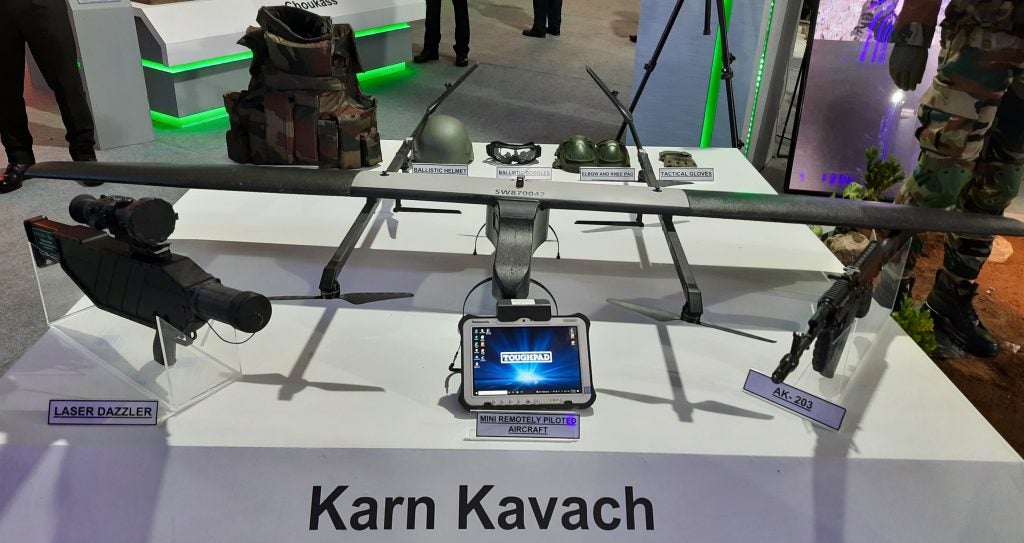
The equipment associated with Karn Kavach system includes: Negev NG7 LMG, SIG716i rifles, AK pattern rifles with night vision devices and under barrel grenade launcher, Multi Mode Hand Grenades, BEL Laser Dazzler, software defined radios, Hand Held Thermal Imager (HHTI) and unit integral ideaForge Switch UAS. Various personal protection equipment include a ballistic helmet, gloves, goggles, knee and elbow pads and a tactical vest. AK-203 rifles will also be part of the equipment.
A platoon, named Karn Kavach Platoon, has been equipped with the latest weapons and equipment. This platoon was trained and exercised to examine the overall augmentation of capabilities with focus on situational awareness. The platoon was evaluated during “Exercise Red Hunt” in August 2022 in Eastern Ladakh and demonstrated its enhanced capabilities in an operational scenario.
The platoon is presently a benchmark to demonstrate the future infantry soldier, sub-unit and unit concepts. Prime Minister Narendra Modi reviewed the concept during DefExpo 2022.
Agniastra Multi Target Detonation System
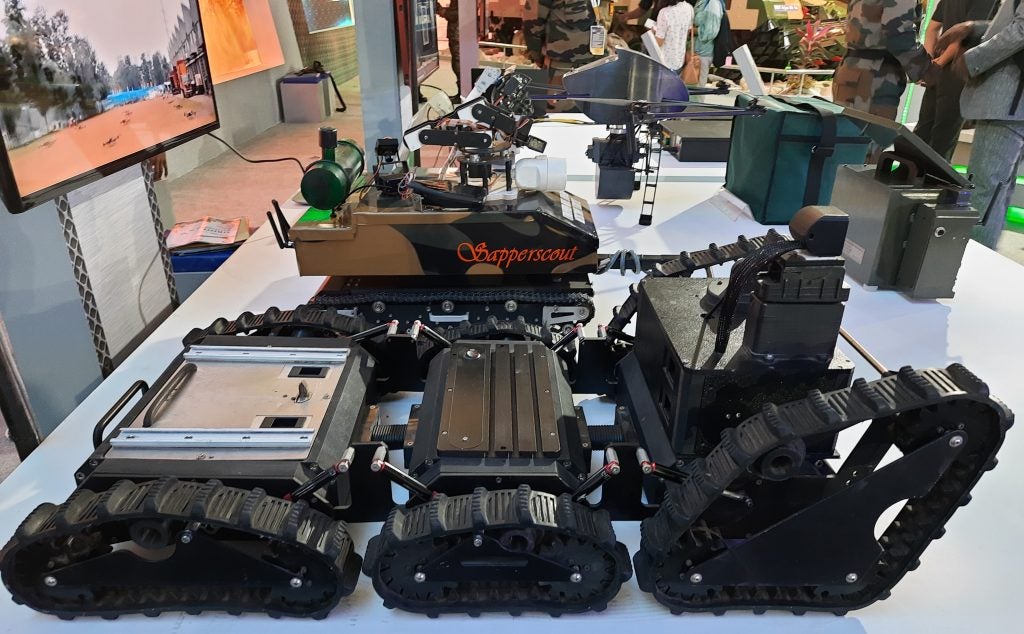
The system is intended for various detonation roles during room intervention, bunker clearance, IED disposal and other operations. The system can destroy multiple targets independently or simultaneously. The system comprises five remote firing units and a master control unit.
The system can be deployed manually. However, the ability of the system to be deployed using small drones and various UGVs was highlighted. The lightweight portable system has a range of over 500m, which can be extended. The system has been successfully tested by the Army.
Continuously Observing Ubiquitously Available Artificial Intelligence Surveillance System (CHOUKASS)
This is a small, highly portable forward area surveillance system capable of processing images, extracting relevant data and transferring the same to surveillance centres in the hinterland. The system is designed for early warning of enemy intrusion by overcoming line of sight limitations and avoiding continuous manning.
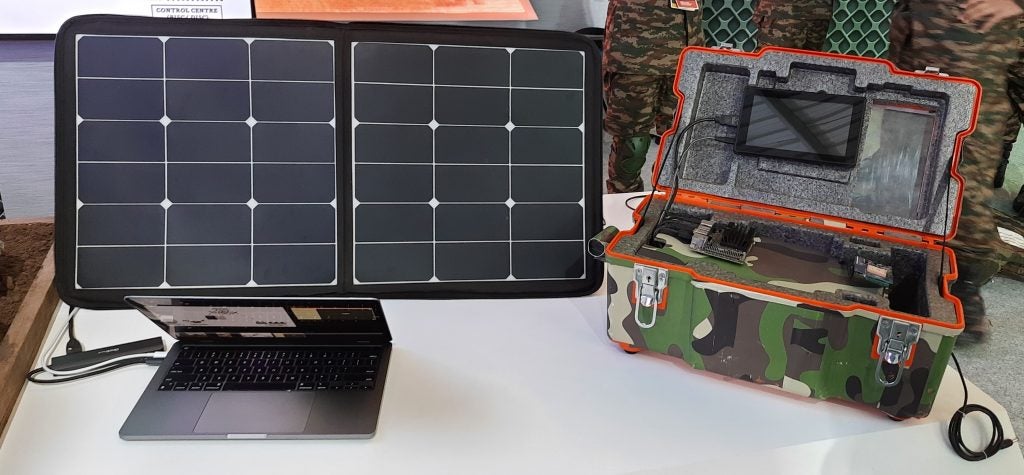
A 400m ranged optical sensor captures imagery which is transmitted real time through a small NB-IOT satellite module to a portal accessible by surveillance centres. The system is designed to be concealable and weighs just 3kg. A Li-ion battery can run the system for 5 days, which can be extended using a 50W foldable solar panel. The AI enabled system can automatically detect targets and raise alerts.
Proactive Real-time Intelligence and Surveillance Monitoring System (PRISM)
PRISM is an AI based system capable of generating real-time audio and visual alerts on detecting suspicious enemy movements, motion detection, target identification and tracking. This is based on feed from multiple surveillance inputs like cameras, LORROS, HHTI, thermal imaging integrated observation equipment and other equipment deployed for monitoring real-time feeds from border areas.
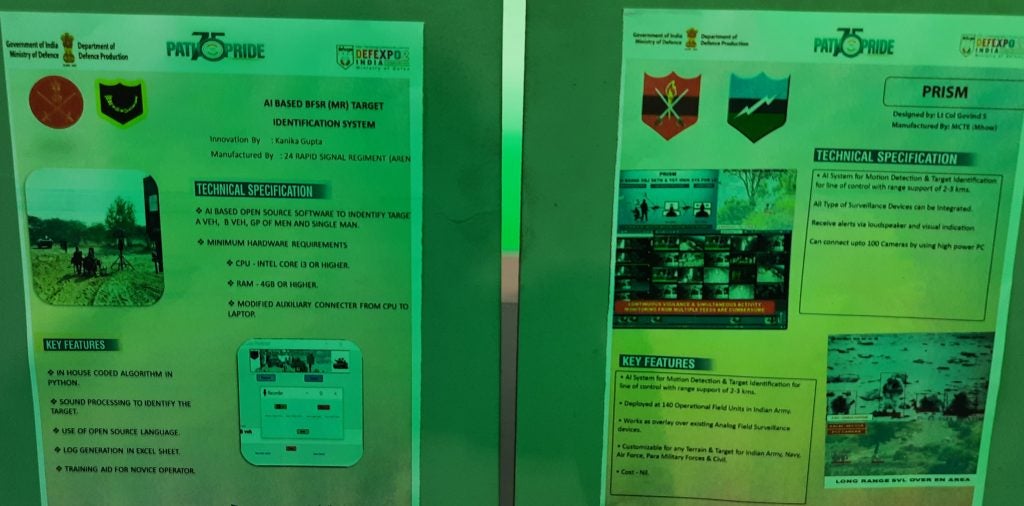
The system’s detection and tracking capabilities can be scaled up for longer distances depending on the optical sensor capability. It can seamlessly analyse night surveillance videos with higher accuracy by integrating the feed with infrared & thermal vision cameras. The innovation was designed in-house based on the requirements received from various field formations.
The system has been deployed and field tested by 35 formations of the Indian Army to date, including the areas of responsibility of 3 Corps, 4 Corps, 9 Corps, 14 Corps, 15 Corps, 16 Corps and 33 Corps deployed along the Northern & Eastern Sectors. It has reportedly been deployed at 145 operational field units.
Sarvatra Pehchaan
This is an AI based intrusion detection and integrated command station. It integrates information from various imaging systems and sensors onto a single dashboard. Its AI based video analytics for anomaly detection allows rapid intervention and reduces manual errors in surveillance centres. The system uses indigenous software and is scalable. The Indian Army’s 15 Corps has evaluated the system and it has been recommended for induction.
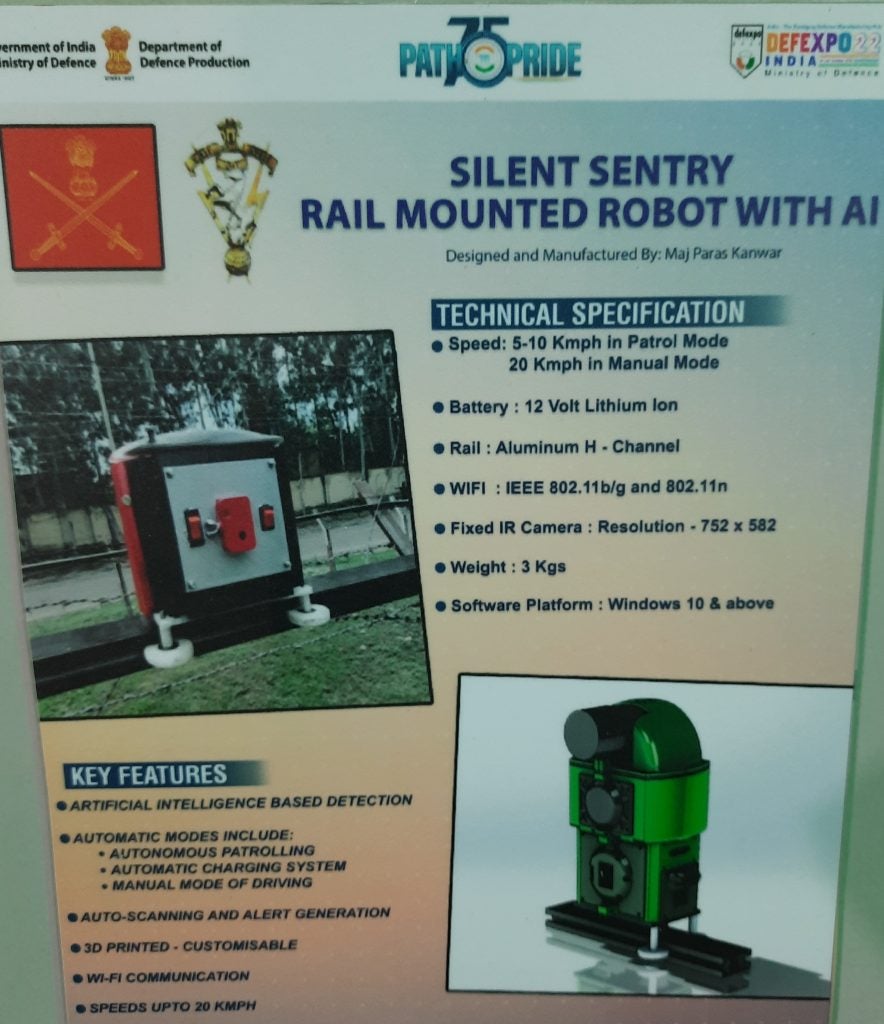
Weaponization of in-service HHTI with Laser Range Finder
This project aims to provide remote surveillance and neutralisation of intrusions. Weapon station consists of 7.62mm GPMG mounted on a Pan & Tilt unit (PTU) while the sensor station consists of a HHTI mounted on a separate PTU for accurate remote firing capability. The control station consists of a video display and an interface.
The system can be used to counter border intrusion, remote observation and accurate engagement from protected locations. The system, which weighs 80kg, is under trial evaluation.
Ten Artificial Intelligence Remotely Operated Weapon Station (TAIROWS)
TAIROWS is a fully autonomous weapon station which can act as a force multiplier and can be designed with human-in-the-loop capability for precision engagement of targets remotely. It is compatible with various small arms such as the INSAS rifle, SIG716, LMGs and SVD rifles.
TAIROWS consists of an in-house designed structure with rotating frame, weapon carriage with a recoil system, an electric trigger assembly and electric motors for control. The system is portable and can be installed on vehicles. It weighs up to 30kg.
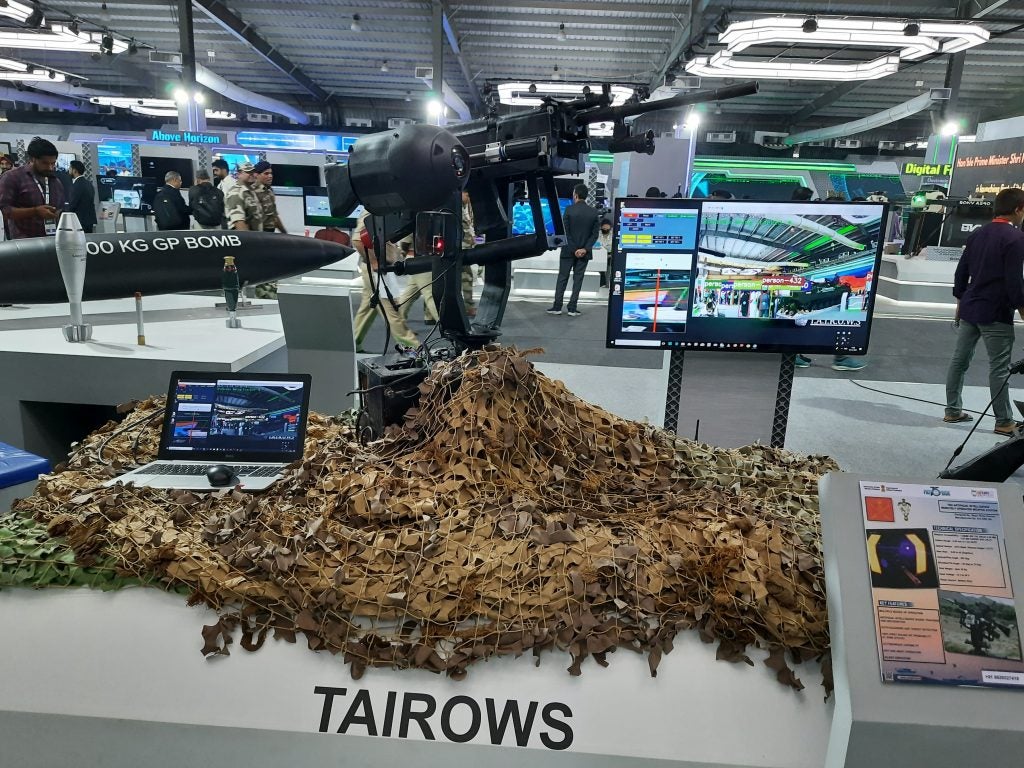
The control software interface can be run on a laptop or tablet and operated in wired or wireless configurations. The system has four modes of operation: manual mode, auto target tracking and engagement mode, preset targets mode and autonomous mode. It can fire at angles from -30° to +70°.
Nine firing trials of TAIROWS have been conducted. The system demonstrated 100% First Round Hit Percentage (FRHP) on static targets up to 300m and 90% FRHP on moving targets in both day and night. The station is powered by two 12V batteries.
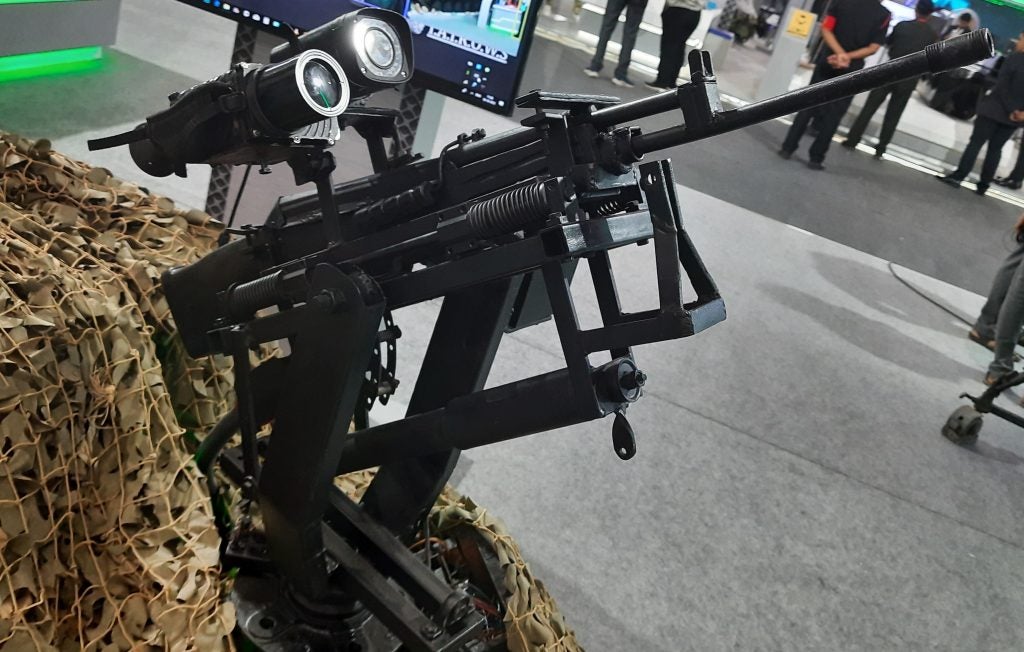
One TAIROWS system has been deployed with the 10 Infantry Division along the Line of Control. The system was developed in February 2021 after a demonstration of the Smartshooter Smash Hopper to Northern Command. TAIROWS is claimed to cost several times less than the Israeli solution and has AI enabled features.

